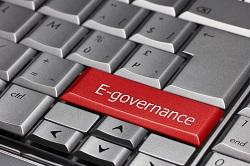E-governance via co-created public services
Recognising that governments can no longer be the single providers of public services, ICT-enabled open and collaborative government is vital to deliver ‘more from less’. To achieve this, it is necessary to empower stakeholders by giving them incentives to take a more active role in the delivery of public services. The EU-funded WeLive(opens in new window) project addressed these challenges. The core goal of WeLive was to transform present e-government approaches into we-government. They advanced a novel public administration concept: mobile urban services co-created by citizens, local businesses and companies. These stakeholders “are treated as peers (collaborators) and prosumers (providers) instead of the usual customer role associated to them,” notes Professor Sara Sillaurren, project coordinator. Co-creation – by all, for all WeLive developed a co-creation methodology and supporting platform where open data publishers, developers and citizens can co-create sustainable public services to meet demand-driven needs. Planning and evaluation of various developments were carried out in four pilot sites: Helsinki region (Finland), Trento (Italy), Bilbao (Spain), and Novi Sad (Serbia). The team developed several new concepts of public services through consultations with different stakeholders in these pilots. Phase I of experimentation resulted in 12 new public service apps published in Google Play(opens in new window). In phase II, the focus was on involving stakeholders in other parts of the co-creation process – that is, not just in co-ideation but also in co-implementation and co-exploitation of public services. Building blocks for novel public services The project’s public service development approach, Sillaurren points out, “does not encourage producing monolithic apps, but rather apps that are assembled as a result of combining distinct reusable components, namely building blocks.” As such, WeLive artefacts –public service apps, building blocks and data sets – are available through the Marketplace component. This enables final users and third-party developers to readily access available apps and apps’ building blocks. These can then be reused to produce other unique public services. Diverse engagement events such as Ideas Contests, Design Thinking workshops and Hackathons at each pilot site were instrumental in facilitating the co-creation process. This supported the production of a wide range of third party-generated artefacts (apps and building blocks) in pilot phase II – specifically, another 20 apps. “This implies that the WeLive public service ecosystem has been doubled through the direct contributions of co-creators external to the project,” the coordinator says. Delivering open services to achieve open knowledge Public administrations need to provide easily consumable and actionable information. WeLive’s building blocks concept can facilitate this and project work resulted in three distinct deliverables. The WeLive co-creation platform supports the collaboration of interested city stakeholders in all phases of the co-creation process, enabling collaborative generation of new public services. A multi-stakeholder co-creation methodology follows a path of co-ideation, co-implementation, co-maintenance and co-business. This sequence will ultimately facilitate the transition from user-driven needs to resources that can give place to added value public service apps. Lastly, the Service Composer tool for co-implementation enables stakeholders – regardless of ICT proficiency – to create new services starting from services/data sets already available through a visual paradigm. The generation of open services may well be the needed in-between step to progress from open data to open knowledge. Project advances enable public administrations to move beyond their capacity as all-controlling and all-providing bodies to organisations that act as facilitators, enablers and orchestrators of public services. To ensure the long-term success and sustainability of the WeLive concept, an exploitation strategy has been set in place to guarantee platform availability, enable further development and promote commercial exploitation of project results.







